An Attempt to Define French Cuisine
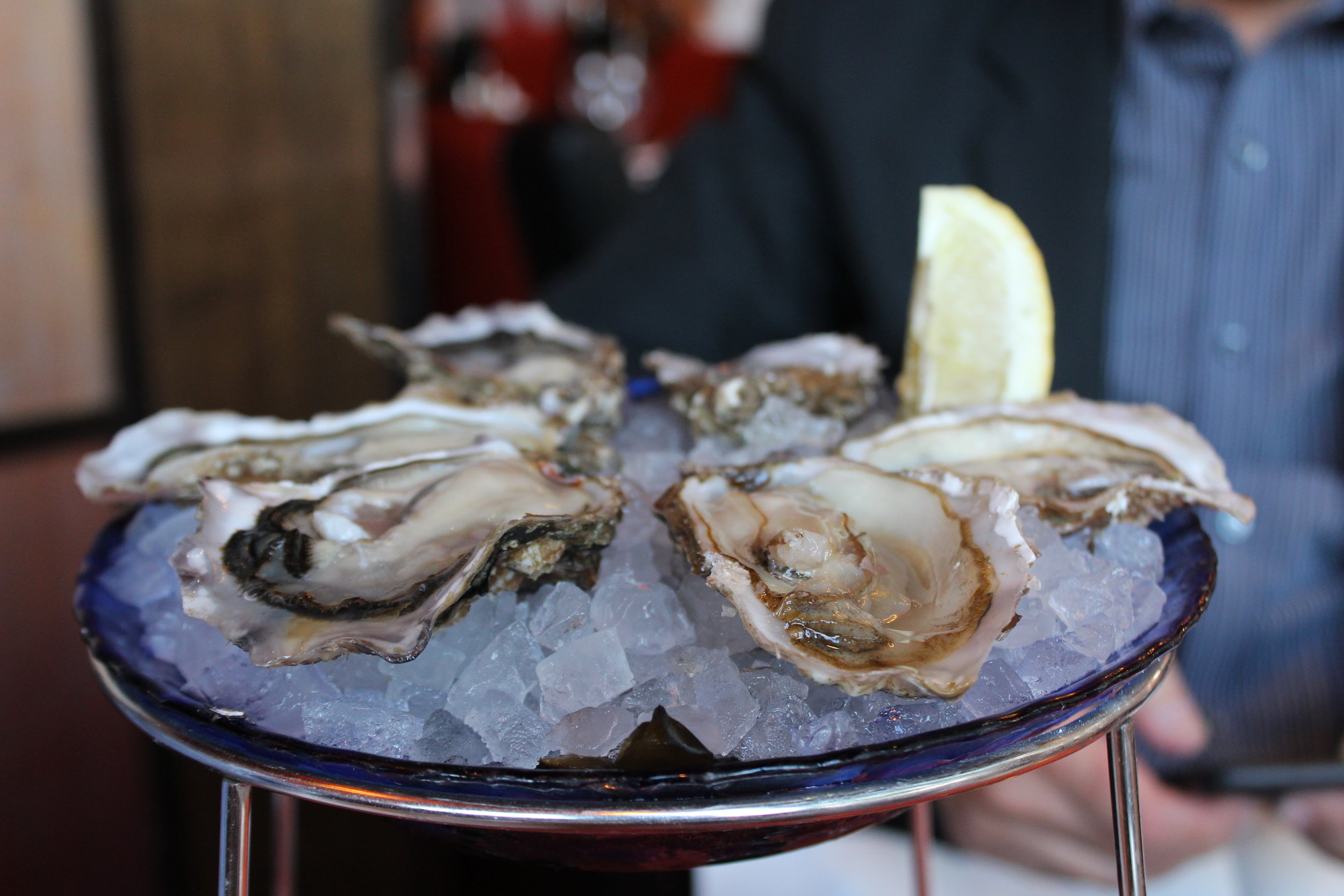
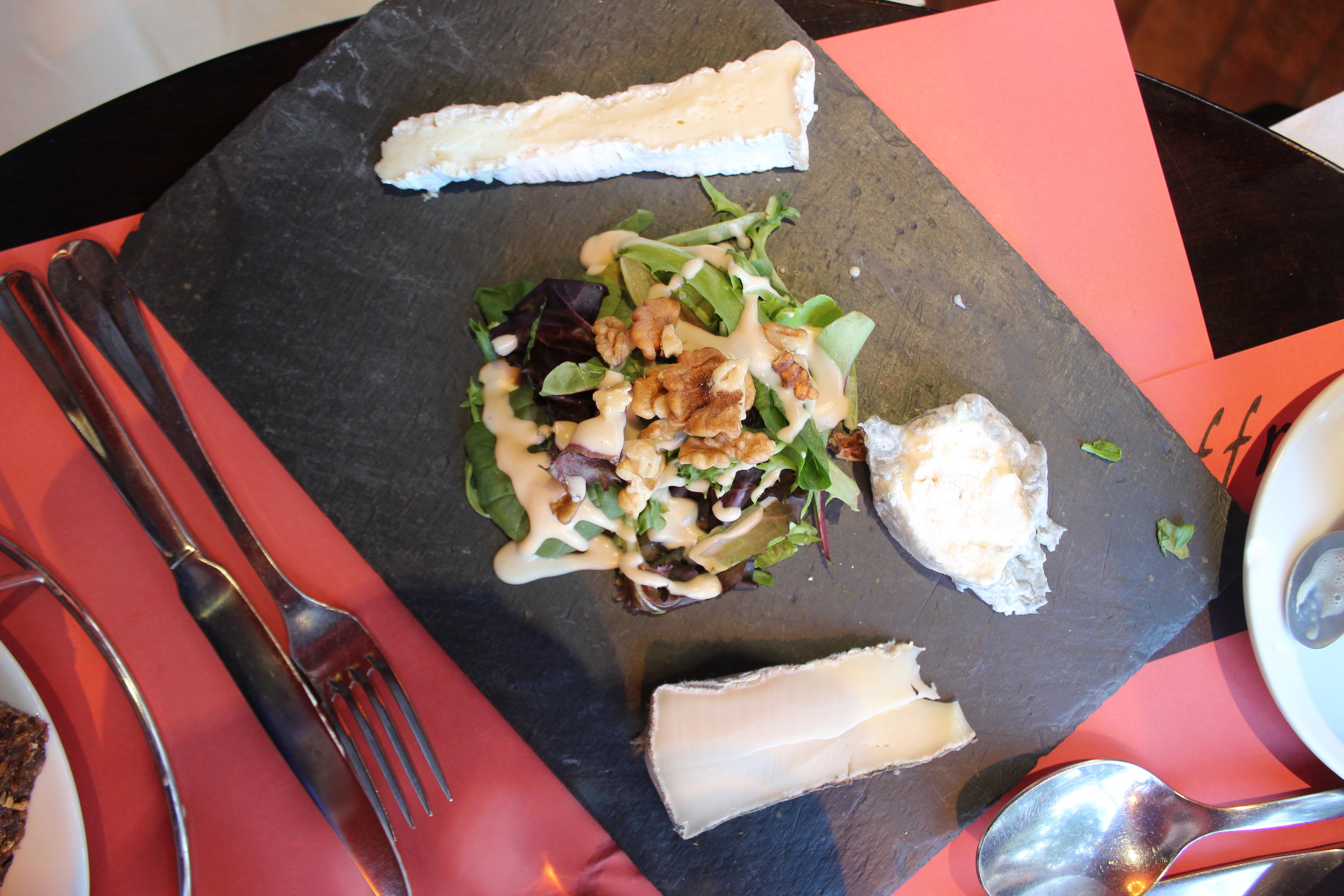
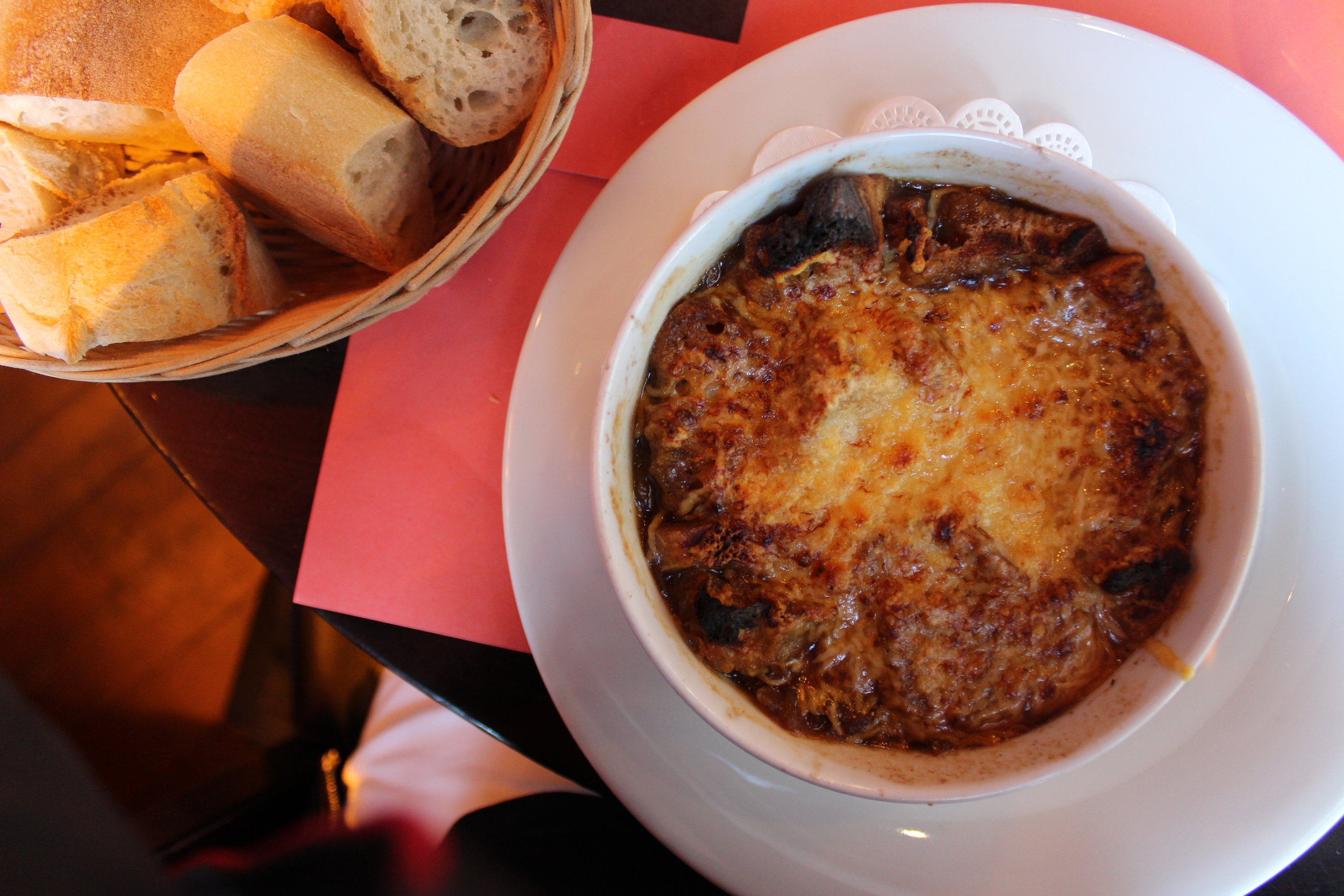
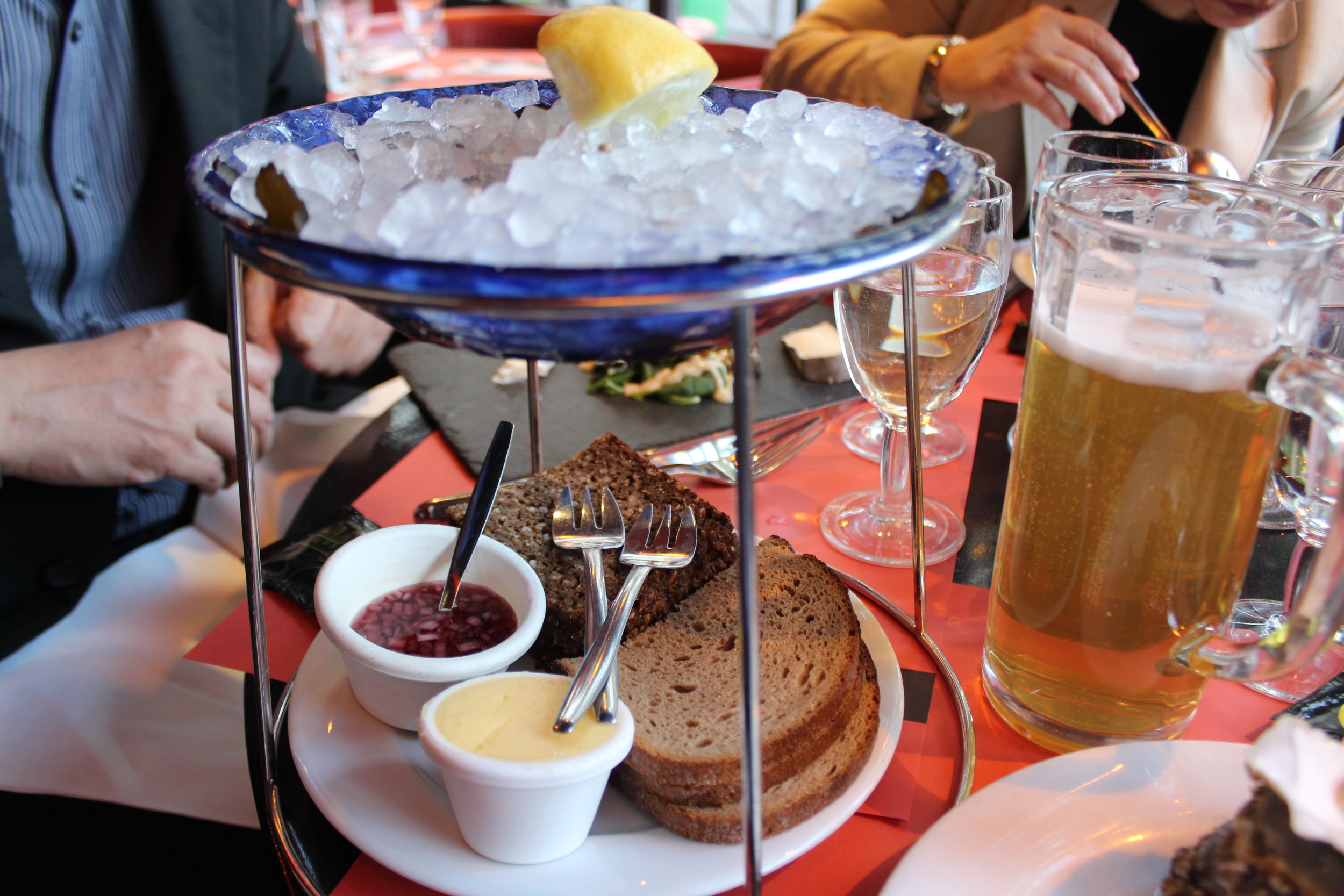
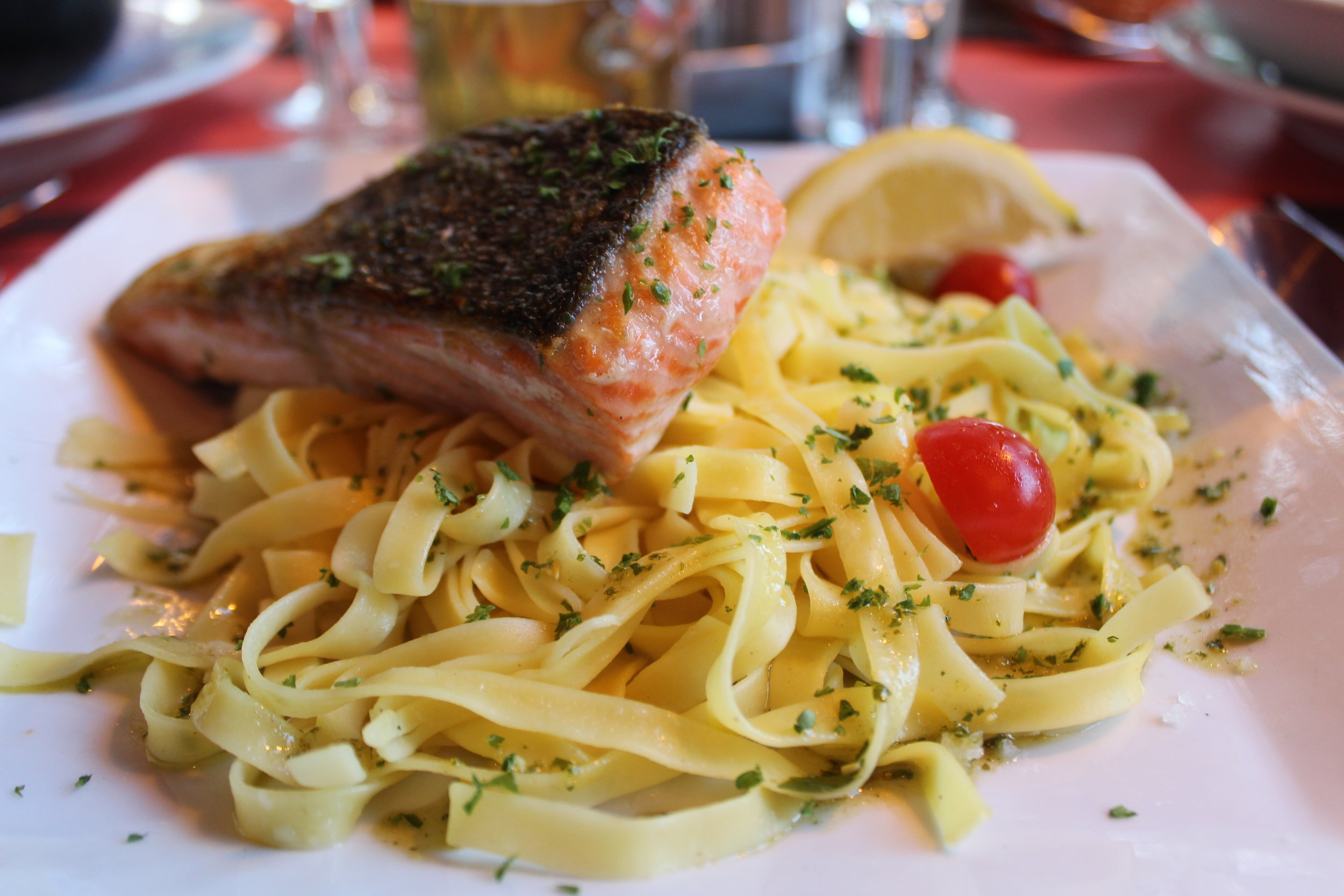
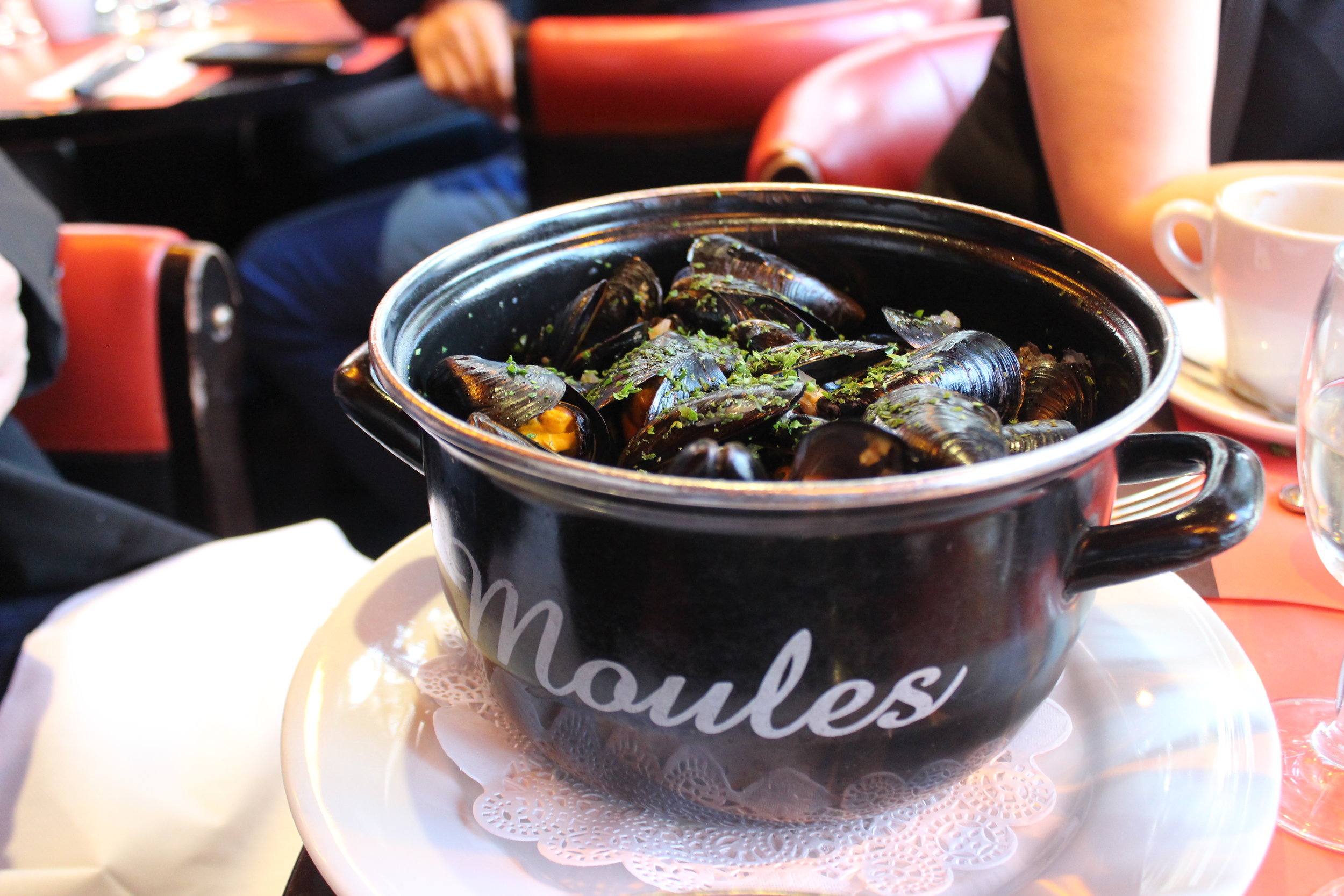
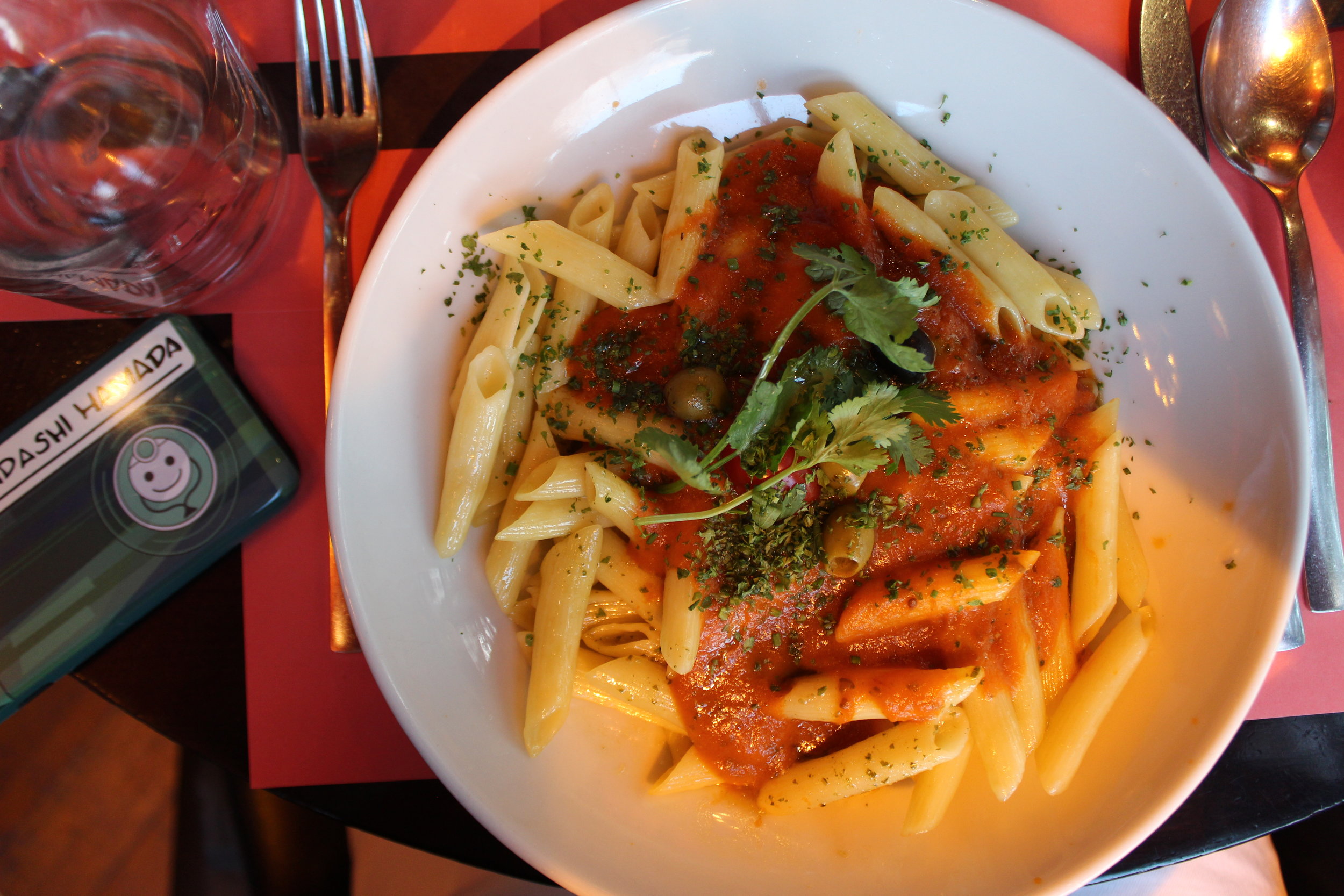
Hello! Sadly, this is the last review from our trip to Paris. But, this is, to me, one of the more important reviews. First, I'll talk a little bit about the restaurant then I'll go into some deeper topics. The restaurant to be discussed is Suffren, a very typical French brasserie within walking distance from the Eiffel Tower. The food wasn't bad but it wasn't great. We still enjoyed the meal. DONE. No more talking about the restaurant.
The real reason I wanted to write this post is because I was interested in defining French cuisine. I always talk about how French food is one of my favorites but I am never able to describe what I like about it or what it is. So, what is it?
I first began this inquisitive journey by trying to understand what defined other cuisines like American food or Chinese food. Not an easy task. To me, American food meant burgers, fries, hot dogs, and milkshakes that brought all the boys to the yard. Comparatively, French food, at a high level, meant bread, cheese, and wine. Conveniently, these staples in French culture all seem to go perfectly together in some oddly logical way. Okay. This makes some sense. But, let's dig a little bit deeper. What really defines French cuisine?
HISTORY TIME. Before the French Revolution, there were guilds that restricted the operation of certain food industries to specific assigned areas. What a bummer! But, after the French Revolution and the abolition of guilds, chefs were free to create whatever they wanted. This led to a massive increase in creativity and innovation within the food industry.
This era birthed epic food heroes like Georges Escoffier and Marie-Antoine Carême. Escoffier was a chef and restaurateur who basically created the assembly line for kitchens called the brigade system. And, Carême invented the four original mother sauces (Allemande, Bechamel, Veloute, Espagnole), which can be used to form other derivatives. Think of these mother sauces as being the 3 primary colors, which create all the other colors. They're super important... like my biceps.
This era of food exploration was coupled by the increase in globalization. In other words, international trade and ease in migration led to the rise in interaction and integration between cultures. Today, you can find a myriad of restaurants in Paris that include French bakeries, American fast food chains, Chinese dim sum, Mediterranean spots, sushi bars, and fancy Michelin-starred restaurants. As a result, all these influences have had a tremendous effect on French cuisine. During our visit in Paris, we saw this first-hand at several restaurants. One example is the Trout Gravlax with Vegetable Maki and Strawberry Chutney we enjoyed at Semilla, which has clear influences from 3 different countries that embody one awesome dish.
After all our analysis, we can surmise that French cuisine generally is sensible, technical, and open to new ideas. I know that there's no definite answer to this question. But, based on what we just studied, it does seem like there is a trend that is in line with the way French cuisine is enjoyed. Whether it's through the use of traditional recipes and ingredients or through the use of new ones, some of the best French restaurants in the world focus on choosing the best ingredients, layering their flavors, and mastering the techniques that bring them all together in one beast of a dish.
Coupled with the cultural amalgamation, those "best" ingredients are now coming from all over the world. To me, all these principles contribute to the enjoyment of dining and to the science behind food preparation and pairing, which are both essential to French cuisine.
Whatever the correct definition may be, I just know French cuisine is absolutely glorious.
Address: 84 Avenue de Suffren, 75015 Paris, France

